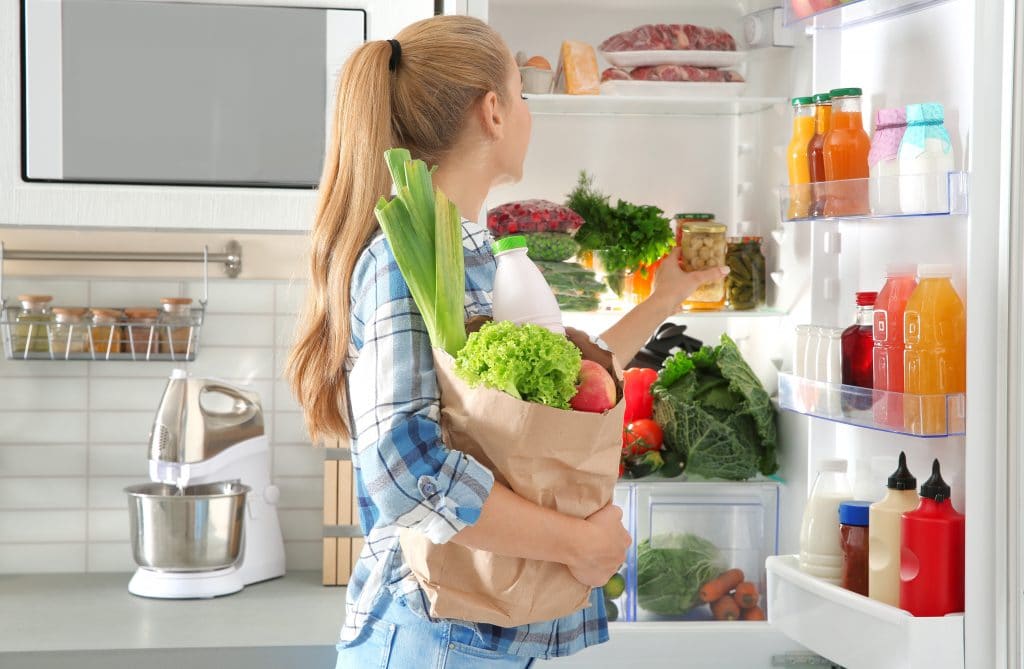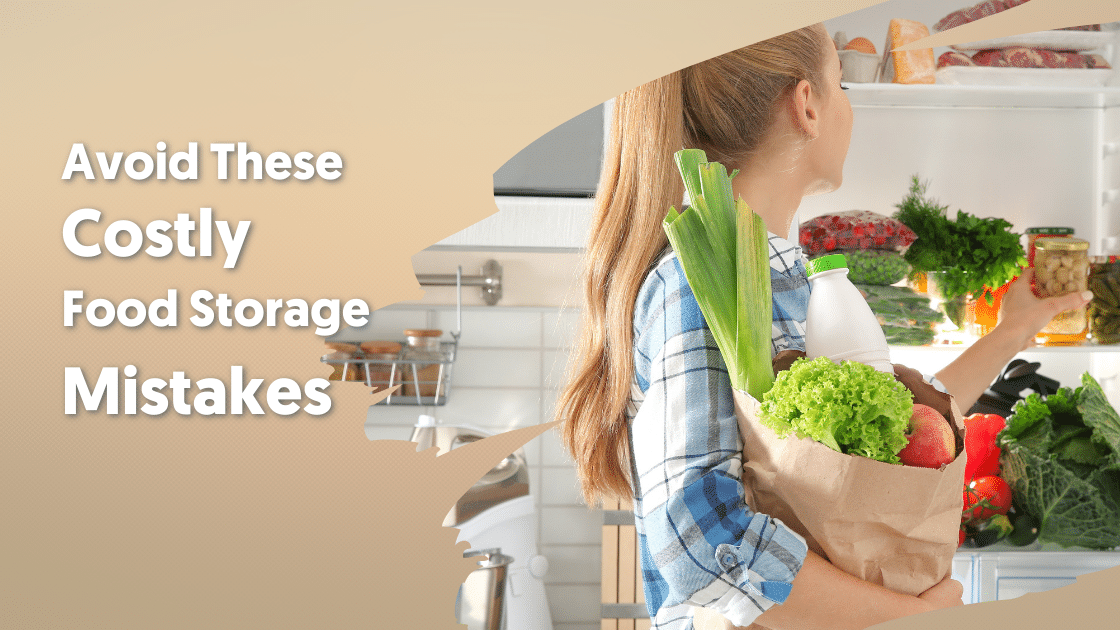Improperly storing your food can not only be a waste of food, time, and money. You may even make yourself sick! Here are a few ways to avoid common food storage mistakes.
Choose The Wrong Shelf.
You rush to put your food away into the refrigerator before it spoils. Unfortunately, you often don’t put much thought into where to properly place each item.

Storing food in the proper order is key. Food that requires little to no cooking will go on the top shelves. Food that requires more cooking should be stored at the bottom. This will help reduce the risk of cross-contamination.
Put foods with juices, such as raw ground beef or sirloin steak, on the bottom shelf. By storing the food low so the juices can’t drip on other foods, you’re eliminating potential cross-contamination.
Using Improper Containers.
It’s a bad idea to put an uncovered plate of leftovers in the fridge. Ideally, you should store food in airtight containers in the fridge (like these). These containers prevent air from reaching food, which accelerates the spoiling process. They also keep liquids from spilling out as well.
Takeout containers are a big culprit. Unfortunately, they just don’t keep food fresh for very long. Opting for containers that are microwave and dishwasher safe will make things even easier!
Failing To Rotate Food.
You can easily prevent the all too common occurrence of discovering your food is moldy or has expired. When putting away your groceries, make sure to place the new items behind older items of similar type when putting your groceries away. You’re able to utilize food before its expiration, rather than continually pushing the items back into the great beyond, never to be seen again for years (or until they start to smell!)
This is a great habit that can be used in both the refrigerator and pantry and will help stop food from going to waste.
Refrigerating Incorrect Produce.
Knowing whether to store certain foods in the fridge can be difficult. While we often check expiration dates, we rarely check whether we should (or shouldn’t) store certain produce in the fridge. You should never refrigerate potatoes, tomatoes, and other citrus fruits because they are affected by the cold air.
If you cut fruits and vegetables, you can store them in the fridge. Place fruits such as apples, pears, nectarines and avocados in the crisper section to help prevent over-ripening.
Storing Perishables In The Door.
While most place perishable items in the door, such as milk and eggs, this is often a bad idea.
When you continually open and close the refrigerator door, the temperature fluctuates and affects the food being stored in here first. Instead, store items like dairy, eggs, and meat in the coldest sections of the refrigerator.
Keeping The Wrong Temperature.
You may be keeping your refrigerator at the wrong temperature. Especially if you notice the food in your fridge feeling frozen or spoiling too quickly.
Storing food in its proper section means nothing if the temperature is too hot or cold. Aim to keep your fridge between 35°F-38°F (but no higher than 40°F) and your freezer below 0°F.
Learning how to properly store food will have huge benefits on your health and your wallet! Give these tips a try and see the difference for yourself!



